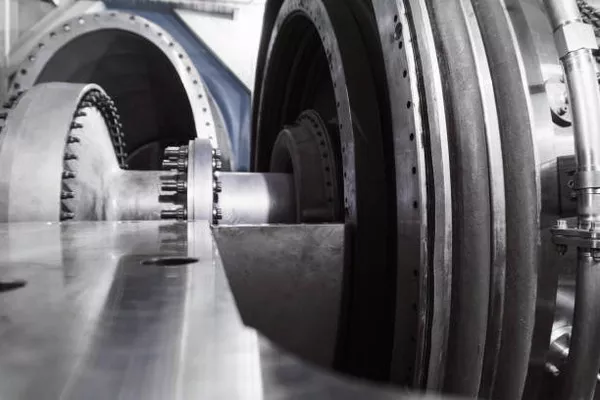Air compressors are indispensable tools in various industries and applications, ranging from automotive repair shops to large-scale manufacturing plants. They provide the power needed to operate pneumatic tools, machinery, and processes. However, like any piece of machinery, air compressors are susceptible to wear and tear, requiring regular maintenance and occasional repairs. This article delves into the factors affecting the cost of repairing an air compressor, typical repair expenses, and tips for cost-effective maintenance.
Factors Influencing Air Compressor Repair Costs
1. Type and Size of the Air Compressor
The type and size of your air compressor significantly influence repair costs. Generally, air compressors are categorized into:
Reciprocating (Piston) Compressors: Often used in smaller applications such as home garages and small businesses.
Rotary Screw Compressors: Common in larger industrial settings due to their efficiency and ability to run continuously.
Centrifugal Compressors: Typically used in large-scale industrial applications due to their high capacity.
Larger, more complex compressors like rotary screw and centrifugal models usually incur higher repair costs compared to smaller reciprocating compressors due to the complexity of their components and the expertise required for repairs.
2. Nature of the Problem
The specific issue with the air compressor greatly impacts the repair cost. Common problems include:
Leaks: Simple to fix and usually inexpensive.
Motor Issues: Repairs or replacements can be costly, especially for larger motors.
Electrical Problems: Vary widely in cost depending on the severity.
Mechanical Failures: Such as broken valves, piston rings, or bearings, can be expensive due to parts and labor involved.
3. Parts and Labor Costs
The cost of parts can vary significantly depending on the brand and availability. OEM (Original Equipment Manufacturer) parts tend to be more expensive than aftermarket alternatives. Labor costs are influenced by the technician’s expertise and the complexity of the repair. Highly skilled technicians or specialists in industrial compressors command higher rates.
4. Location and Service Provider
Geographical location affects repair costs due to variations in labor rates and availability of parts. Urban areas with higher living costs typically have higher repair rates. Additionally, authorized service centers might charge more than independent repair shops, though they may offer higher quality service and warranties.
Typical Repair Costs
While repair costs can vary widely, here are some general estimates for common air compressor repairs:
1. Minor Repairs
Seal or Hose Replacement: $50 – $150
Valve Replacements: $100 – $300
Belt Replacement: $75 – $200
2. Moderate Repairs
Motor Repairs or Replacements: $200 – $800
Replacing Pressure Switch: $150 – $300
Electrical System Repairs: $100 – $500
3. Major Repairs
Bearing Replacement: $300 – $1,000
Overhaul: $1,000 – $3,000
Air End Rebuild (for Rotary Screw Compressors): $2,000 – $5,000
Hidden Costs and Considerations
1. Downtime
Repairing an air compressor often means downtime, which can be costly for businesses that rely heavily on continuous operation. The cost of lost productivity should be considered when evaluating repair expenses.
2. Maintenance Contracts
Some businesses opt for maintenance contracts that cover regular servicing and repairs. While this is an additional upfront cost, it can save money in the long run by preventing major breakdowns and ensuring efficient operation.
3. Replacement vs. Repair
In some cases, it may be more cost-effective to replace an old or frequently malfunctioning air compressor rather than continually repairing it. Assessing the cost-benefit ratio of repair versus replacement is crucial for long-term financial planning.
Tips for Cost-Effective Maintenance
1. Regular Maintenance
Routine maintenance is the key to preventing costly repairs. Regularly check and replace filters, lubricate moving parts, and inspect for leaks or wear. Adhering to the manufacturer’s maintenance schedule can significantly extend the lifespan of your air compressor.
2. Training for Operators
Proper training for operators can prevent many common issues caused by misuse. Ensure that all users are knowledgeable about correct operating procedures and basic troubleshooting.
3. Using Quality Parts
While aftermarket parts can be cheaper, they may not always offer the same reliability as OEM parts. Investing in quality parts can prevent frequent breakdowns and ensure the efficient operation of your compressor.
4. Monitoring and Diagnostics
Modern air compressors often come with monitoring systems that can alert you to potential issues before they become serious problems. Utilizing these diagnostic tools can help in early detection and repair of faults, saving significant repair costs.
5. Professional Inspections
Periodic professional inspections can identify potential problems that might be missed during regular maintenance. Hiring a professional to inspect your air compressor annually can help catch issues early.
See Also WHAT ARE THE TYPES OF AIR COMPRESSOR
Conclusion
Repairing an air compressor can vary in cost based on several factors, including the type and size of the compressor, the nature of the problem, parts and labor costs, and your location. Understanding these variables can help you anticipate expenses and make informed decisions about maintenance and repairs. By investing in regular maintenance, training, and quality parts, you can minimize repair costs and extend the lifespan of your air compressor, ensuring that it remains a reliable asset in your operations.
Maintaining an air compressor is not just about reacting to problems as they arise but also about proactive care and strategic planning. Weighing the costs and benefits of repairs versus replacements, and considering the potential downtime, are crucial for efficient and cost-effective management. In the long run, a well-maintained air compressor will save money, enhance productivity, and ensure the smooth running of your business operations.

